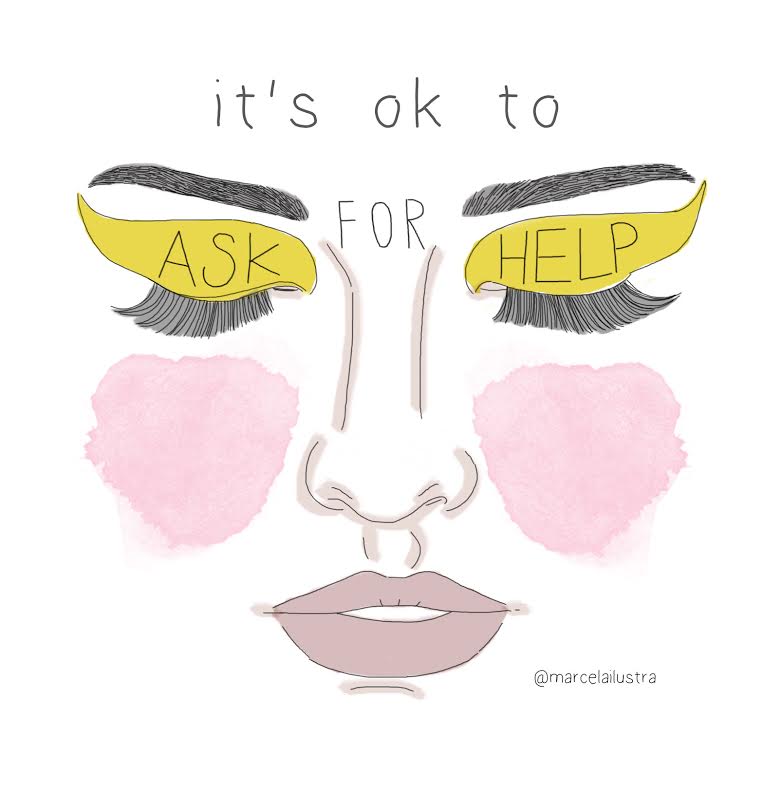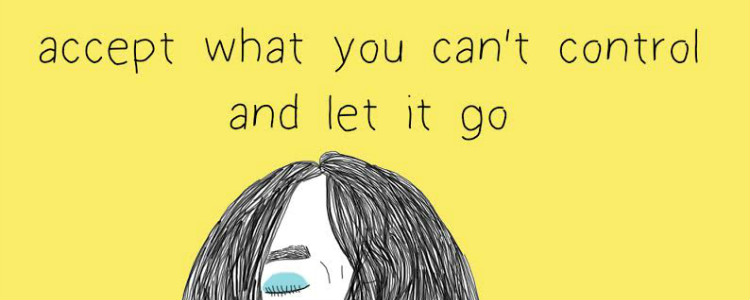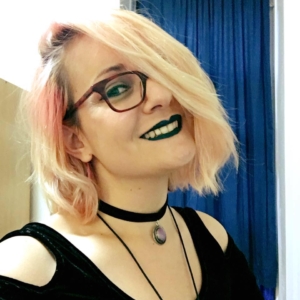Brazilian Illustrator Marcela Sabiá is Challenging the Stigma Surrounding Mental Health, Body Image & Disability
Marcela Sabiá is a 26-year-old Brazilian illustrator who loves dogs, astrology, and creating art that makes the world a better place. She first started creating art professionally in 2015, and now, nearly three years later, she boasts an Instagram following of over 20,000. We chatted with Marcela about her art, her feminist awakening, and what she’d tell young women who are struggling with body image issues or eating disorders. Check out our interview below!
Diana Denza: Can you tell us more about the process of creating some of the pieces on your Instagram?
Marcela Sabiá: Of course! The process happens quite spontaneously, I think. I try to talk and ask for opinions from friends and followers, but I never quite know the idea that will inspire me until it appears. It needs to be something that touches me, whether it’s an experience of mine or someone else’s. From there, I look for references on the internet (I love Pinterest!), then start to sketch. Once the illustration is ready, I concentrate and write a short text to complement the art. The illustration in which it is written “it’s ok to cry” happened just after a crying crisis I had and I told the story in the description, so it is a natural and sincere process.

DD: You’ve shared a lot about your own journey with mental illness and treatment on your Instagram. How has that inspired people, and what do you hope to see in the future?
MS: I believe the biggest way my work has inspired people is that it makes them feel less alone. When you suffer with mental illness, you feel that there is no one like you in many moments and this only adds to the pain. So I think that makes them feel part of a community and know that they are not really alone. I very much hope that in the future, the stigma surrounding mental health will be something overcome by society. That people have no more fear, shame, or any problem in admitting that they have a mental illness and are not judged for it. May they be treated as naturally as any person suffering from physical illness.
DD: You live in Brazil. How do the discussions around body image and mental health in Brazil compare to America?
MS: I believe that here in Brazil, we are still far behind in such matters. We still do not have many girls active in the body positivity community on social media. I would love to see Brazilian girls show their bodies without fear as I see so many girls from Europe and America doing. There is still a very strong culture around the “gym body” and society expects women to fit into this pattern – hot women with skinny bodies worthy of a beach bikini. The word fat still has a very negative connotation around here. As for mental health, things are a little better, but there is still a lot to improve. I see some people talking openly about it but most still hide for fear of judgment. There is still little information and a prejudice about mental disorders that needs to be clarified and discussed.
DD: Have you always been a feminist, or did you have an awakening at some point?
MS: I had an awakening when a long relationship of mine ended. I realized there was sexism around me that I had not noticed before. This person had cheated on me and I had to hear people ask me what I had done for him to look for someone else and that “that is the nature of men.” From then on, I also had a series of experiences that began to awaken in me the desire to contribute to the equality between the sexes and the extinction of outdated concepts.
 DD: Do you believe the body positive community has done enough to include people living with mental illness or disabilities? If not, what would you like to see in terms of inclusion?
DD: Do you believe the body positive community has done enough to include people living with mental illness or disabilities? If not, what would you like to see in terms of inclusion?
MS: I believe there is still much to be done, and I include myself when I say that. I really appreciate what this community has done and I think it’s wonderful. I have seen many different issues being addressed and this makes me extremely grateful. But I think we need to continue until it reaches more and more people, just because society is not yet informed enough.
DD: What would you tell young women who are struggling to recover from an eating disorder or to love their bodies?
MS: I would say that they are much more capable than they realize. Look for inspiration, for examples of people who have overcome their disorders and continue to do this every day. Meet the people who participate in the bopo community and open your minds to what these people have to say and teach. The same goes for those who want to love their bodies: learn from people who are already farther on this journey and remember that one day they were at the same point that you are today. We all have to start somewhere and there are no requirements for self love. No matter what happened in the past, everything can be different – you just have to believe it.
You can follow Marcela on Instagram @marcelailustra or her website, marcelailustra.com.





